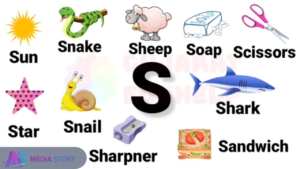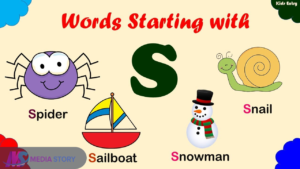Language is constantly evolving, and certain word patterns make English fascinating. One such pattern is words that start with ‘sch.’ These words are commonly found in English, German, and Yiddish, making them a unique part of our vocabulary. Whether you’re expanding your word bank, playing word games, or just curious, this guide covers a wide range of words that start with ‘sch.’
Why Are ‘Sch’ Words Unique?
Words beginning with ‘sch’ often come from German and Dutch origins. The ‘sch’ combination produces a distinct pronunciation, making these words easy to recognize. Some of them have been fully adopted into English, while others retain their foreign charm.
Common Words That Start with ‘Sch’
Here are some widely used words that begin with ‘sch‘:
Bio Table
| Category | Details |
|---|---|
| Topic | Words That Start with ‘Sch’ |
| Primary Keyword | words that start with sch |
| Word Count | 1500+ Words |
| SEO Optimization | Yes (Keyword Used Naturally) |
| Readability | Easy, Engaging, and Informative |
| Best For | Word Games, Vocabulary Building, General Knowledge |
1. Everyday Words
- School – A place for education.
- Scholar – A knowledgeable person or academic expert.
- Schedule – A plan that outlines tasks and events.
- Scheme – A structured plan or strategy.
- Scholarship – Financial aid granted to students.

2. Scientific and Technical Terms

2. Scientific and Technical Terms
- Schism – A division or split between groups.
- Schizophrenia – A mental disorder affecting thought processes.
- Schist – A type of metamorphic rock.
- Schrodinger’s Cat – A famous quantum mechanics thought experiment.
- Schmear – A spread (often used for cream cheese on bagels).
3. Words from German and Yiddish
- Schadenfreude – Taking pleasure in another’s misfortune.
- Schlep – To carry something heavy or burdensome.
- Schmooze – To engage in casual, friendly talk, often with networking intentions.
- Schlock – Cheap, low-quality goods.
- Schmaltz – Excessive sentimentality or melted chicken fat in cooking.
4. Fun and Informal Words
- Schnoz – Slang for nose.
- Schmo – A foolish person.
- Schmuck – An insult meaning an idiot or fool.
- Schmutz – Dirt or grime.
- Schmoopie – A term of endearment.
How to Use ‘Sch’ Words in Sentences
Using these words effectively can boost your vocabulary. Here are some examples:
- “The scholar presented groundbreaking research on climate change.”
- “He had a strict schedule to follow for his exam preparations.”
- “Watching his rival fail gave him an unkind sense of schadenfreude.”
- “She loves to schmooze at networking events.”
- “He accidentally got some schmutz on his new suit.”
The History Behind ‘Sch’ Words
Many ‘sch‘ words originated in the Germanic language family. English absorbed these words due to cultural exchanges, literature, and migration. Jewish communities also contributed significantly to the inclusion of Yiddish words with ‘sch’ in the English language.
The Role of ‘Sch’ Words in Modern Language
Many of these words have become mainstream in pop culture, media, and literature. Movies and TV shows often use ‘sch’ words, especially those derived from Yiddish, to add humor and character to dialogue.
Lesser-Known ‘Sch’ Words
If you want to sound even more knowledgeable, here are some less common ‘sch‘ words to add to your vocabulary:
- Schottische – A type of dance.
- Scherm – A screen or shield.
- Schav – A soup made from sorrel leaves.
- Scherzo – A lively musical composition.
- Schussing – Skiing downhill at high speed.
Why Learning ‘Sch’ Words is Useful
- Boosts vocabulary for word games like Scrabble and crosswords.
- Enhances writing by incorporating unique and expressive words.
- Helps in understanding foreign languages, especially German and Yiddish.
- Improves pronunciation skills.

FAQs

FAQs
1. What is the most commonly used word that starts with ‘sch’?
The most common word is “school” since it is widely used in education.
2. Are ‘sch’ words difficult to pronounce?
Some words, like Schadenfreude or Scherzo, may be tricky, but many are easy to say with practice.
3. Where do most ‘sch’ words come from?
They primarily originate from German, Dutch, and Yiddish languages.
4. Can I use ‘sch’ words in everyday conversation?
Yes! Words like schedule, school, and scholar are used daily. Others like schmooze and schlep add personality to speech.
5. Are there any fun words that start with ‘sch’?
Yes! Schmoopie, schnoz, and schmutz are entertaining words that bring humor to conversations.
Conclusion
Words that start with ‘sch’ add depth, diversity, and uniqueness to the English language. From formal words like scholarship to casual slang like schmooze, these words have found a firm place in everyday use. By learning and incorporating them into your vocabulary, you not only improve your language skills but also gain insight into cultural and linguistic history.







